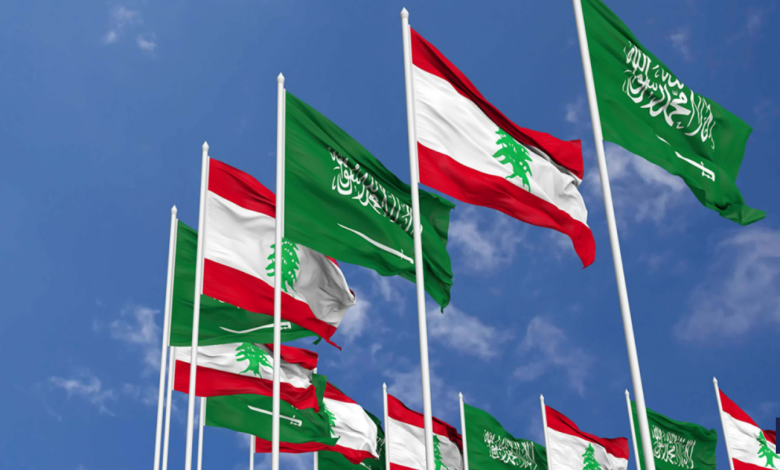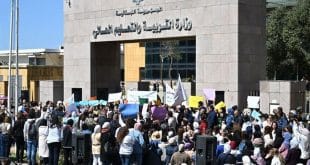السعودية تعود إلى لبنان: عاصفة حزم وإعادة أمل
السعودية تعود إلى لبنان: هل يكون التغيير نقطة انطلاق أم مجرد محطة جديدة في دوامة الأزمات؟
بعد سنوات طويلة من الفراغ الرئاسي والأزمات السياسية والمالية والاقتصادية، دخل لبنان مرحلة جديدة بعد انتخاب العماد جوزاف عون رئيساً للجمهورية وتشكيل حكومة الرئيس نواف سلام. هذه الحكومة التي أُعدت لأول مرة بمقاسات وطنية جديدة، تمثل نقطة تحول كبيرة، حيث يبدو أن لبنان بدأ يستعيد زمام المبادرة بفضل الدعم العربي والدولي، وعلى رأسه المملكة العربية السعودية، التي كانت دومًا حاضرة لدعم لبنان في محنته.
التحولات السياسية وفرص الإصلاح في لبنان
هذه التحولات تفتح الباب أمام مستقبل إيجابي للبنان، ولكنها في ذات الوقت تضع الحكومة الجديدة أمام اختبار كبير: هل سيترجم التغيير الحاصل إلى خطوات عملية تقود لبنان نحو استعادة هيبته وسلطته أم أن الأمر سيكون مجرد محطة جديدة في سلسلة من المساومات والمواجهات، خاصة في ظل الأوضاع السياسية المعقدة على “طريق المطار” التي قد تتصاعد في المرحلة المقبلة؟
السعودية ودعم لبنان: رؤية استراتيجية للمستقبل
لطالما وقفت المملكة العربية السعودية إلى جانب لبنان في أوقات الأزمات، وقد لعبت دورًا محوريًا في رعاية اتفاق الطائف الذي أنهى الحرب الأهلية اللبنانية وأدى إلى حل الميليشيات المسلحة. ومنذ ذلك الحين، لم تتعامل المملكة مع الواقع اللبناني بردود فعل فورية، بل كانت دائمًا تركز على مقاربة استراتيجية تضع مصلحة لبنان والشعب اللبناني في المقام الأول، وتراعي في الوقت ذاته أمن المنطقة واستقرار دول الخليج العربي.
المملكة العربية السعودية: موقف ثابت ودعم للبنان
موقف المملكة العربية السعودية كان واضحًا وثابتًا في السنوات الأخيرة، وهو: دعم لبنان الذي يتبنى قرارًا سياديًا، يحرص على تحقيق الاستقرار الداخلي ويحظر السلاح غير الشرعي. السعودية لن تدعم مشاريع فاشلة أو تجديد الأزمات السابقة، بل تسعى لتقديم الدعم في مشاريع إصلاحية تُعزز الانتماء إلى الدولة اللبنانية وتمنع الاستقواء عليها.
هل ينجح لبنان في استعادة سيادته؟
اليوم، مع انطلاق عمل حكومة نواف سلام، تراقب المملكة العربية السعودية والدول العربية الأخرى عن كثب، هل ستتمكن الحكومة اللبنانية من ترجمة دعمها الدولي والعربي إلى خطوات ملموسة تساهم في التعافي الاقتصادي وإعادة بناء الدولة، أم أن التغيير في الشكل لن ينعكس على جوهر الوضع اللبناني؟
المملكة أعلنت دعمها المطلق، لكن هذا الدعم مشروط بإصلاحات حقيقية، تشمل إصلاحات مالية واقتصادية، وصياغة سياسة خارجية متوازنة تتماشى مع مصالح لبنان ومصالح الدول العربية. الأهم من ذلك هو أن لبنان يجب أن يعيد الاعتبار لمفهوم الدولة ويضع حدًا للاستقواء على الدولة من خلال الجماعات المسلحة.
المملكة مستعدة لدعم لبنان لكن بشرط
إن الدعم السعودي لن يكون بديلاً عن الإصلاح الداخلي، بل شريك في المسار الإصلاحي. في حال لم يترجم التغيير إلى خطوات عملية واضحة، سيكون لبنان في مواجهة مصير ضبابي، بعيد عن إعادة استعادة هيبته وقوته كدولة ذات سيادة.
لبنان أمام اختبار صعب في هذه المرحلة، والمملكة العربية السعودية مستعدة لدعمه، لكن هذا الدعم لن يستمر بدون رؤية إصلاحية واضحة تعمل على إعادة بناء الدولة اللبنانية بعيدًا عن الولاءات السياسية والميليشيات.
Saudi Arabia Returns to Lebanon: Storm of Resolve and Renewed Hope
Saudi Arabia Returns to Lebanon: Will This Change Be a Turning Point or Just Another Station in a Cycle of Crises?
After years of presidential vacuum and ongoing political, security, financial, and economic crises, Lebanon has entered a new phase with the election of General Joseph Aoun as President of the Republic and the formation of Prime Minister Nawaf Salam’s government. For the first time, this government is designed with a national vision that moves away from the frameworks established by the Doha Agreement, from its formation to the selection of ministers and the crafting of its ministerial statement, which will be presented to the Lebanese Parliament next week for a vote of confidence. This statement, along with the trust it has garnered from both the Lebanese people and the international community—particularly Saudi Arabia—sets a hopeful tone for the country’s future.
Political Shifts and Opportunities for Reform in Lebanon
These political shifts open the door to a positive future for Lebanon, yet they also present a critical test for the new government: Will the changes made so far lead to real reforms that restore the state’s authority and dignity, or will this simply be another phase in Lebanon’s ongoing cycle of compromises, political wrangling, and confrontations—especially concerning the “airport road” which could soon rival Hezbollah’s “Jerusalem road” rhetoric?
Saudi Arabia and Lebanon: A Strategic Vision for the Future
Saudi Arabia has always stood by Lebanon in its existential crises and played a pivotal role in sponsoring the Taif Agreement that ended the Lebanese Civil War and dismantled armed militias. Since then, Saudi Arabia has never dealt with Lebanon’s reality in reactionary terms. Instead, it has followed a strategic approach that prioritizes Lebanon’s national interest, as well as the security and stability of the Gulf region.
Saudi Arabia’s Clear Position: Support for Sovereign Lebanon
Saudi Arabia’s position has been clear and steadfast in recent years: it will only support a Lebanon that exercises sovereign decision-making, one that controls its arms, and one that addresses issues like smuggling and illegal weapons proliferation. Saudi Arabia is not interested in supporting failed projects or repeating past crises but is committed to investing in reforms that foster a strong, sovereign state.
Will Lebanon Regain Its Sovereignty?
With the commencement of Prime Minister Nawaf Salam's government, Saudi Arabia and the broader Arab world are closely watching whether the government can turn the international and regional backing it has received into tangible actions that can lead Lebanon toward recovery. The key question is: will the new government prove that change in appearance can lead to genuine transformation, or will it merely be a façade hiding the same old political dynamics?
Saudi Arabia has reaffirmed its full support but made it clear that this support is conditional on serious reforms. These reforms include a serious economic and financial overhaul, a foreign policy that balances Lebanon’s interests with those of the Arab world, and the restoration of an independent judiciary that is free from political interference.
Saudi Arabia is Ready to Support Lebanon, But with Conditions
Saudi Arabia’s support will not replace Lebanon’s need for internal reforms. The Kingdom will continue to assist Lebanon, but this support comes with the understanding that Lebanon must adopt a clear, actionable reform agenda that ensures the country moves away from reliance on militias and illegal armed groups.
Lebanon now faces a difficult test, and Saudi Arabia is ready to support it. However, this support will only continue if Lebanon demonstrates genuine commitment to reforming its governance and sovereignty.
Translated by economyscopes team
المصدر: اللواء
 سكوبات عالمية إقتصادية – EconomyScopes إجعل موقعنا خيارك ومصدرك الأنسب للأخبار الإقتصادية المحلية والعربية والعالمية على أنواعها بالإضافة الى نشر مجموعة لا بأس بها من فرص العمل في لبنان والشرق الأوسط والعالم
سكوبات عالمية إقتصادية – EconomyScopes إجعل موقعنا خيارك ومصدرك الأنسب للأخبار الإقتصادية المحلية والعربية والعالمية على أنواعها بالإضافة الى نشر مجموعة لا بأس بها من فرص العمل في لبنان والشرق الأوسط والعالم




